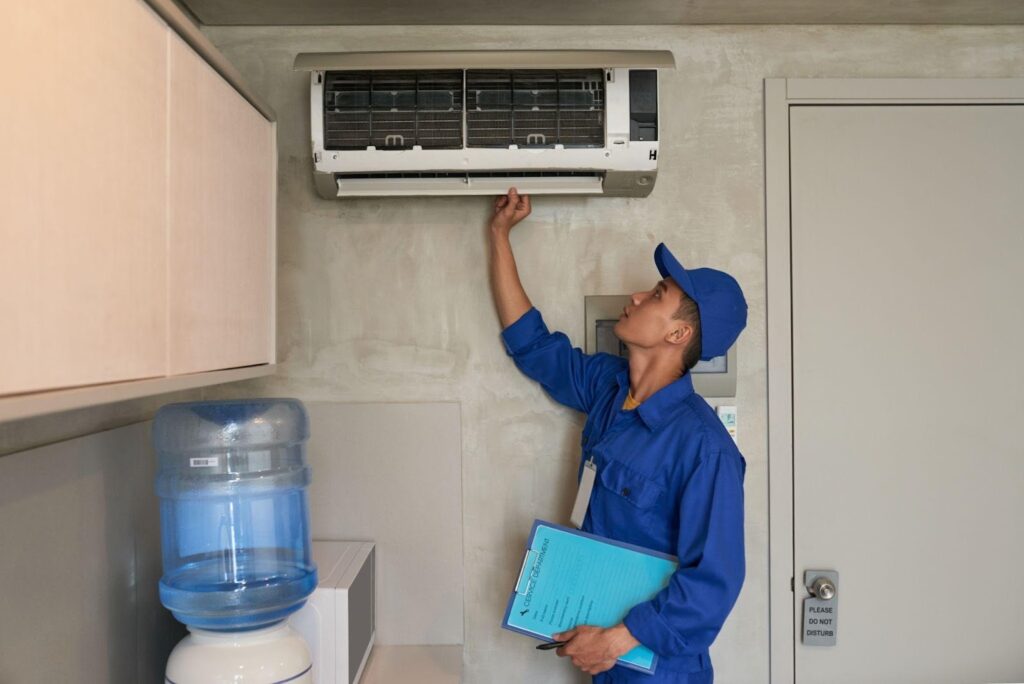
There’s nothing like a pleasantly cool room on a blisteringly hot day. Air conditioners, especially the quietest air conditioner models, can be lifesavers in the midst of a scorching summer. However, the pleasure of a chilled room often comes with the sting of high energy bills. The good news? It doesn’t have to be this way. Adopting smart, energy-saving habits ensures that your air conditioning system operates efficiently, providing the cool relief you need without emptying your wallet. This article delves into some practical tips to help you achieve just that.
Understanding Your Air Conditioner’s Energy Efficiency
Before diving into the energy-saving tips, it’s essential to understand how your air conditioner’s energy efficiency is measured. This understanding is fundamental to ensuring your air conditioner operates at its optimal capacity.
The energy efficiency of an air conditioner is usually measured by its Energy Efficiency Ratio (EER) or Seasonal Energy Efficiency Ratio (SEER). These figures show how much cooling power you get for each unit of energy consumed. A higher EER or SEER means a more energy-efficient air conditioner.
Let’s delve into some actionable tips to boost your air conditioner’s efficiency.
Regular Maintenance and Cleaning
One of the most straightforward ways to maximise your air conditioner’s efficiency is by ensuring it’s regularly maintained and cleaned. Dust and dirt accumulating in the air filters restrict airflow and reduce efficiency. Cleaning or replacing your filters every few months is highly recommended.
Similarly, cleaning the air conditioner’s coils is also critical. Dust-covered coils will force the system to work harder, increasing energy consumption.
Optimal Thermostat Settings
Your thermostat settings can significantly impact your air conditioner’s energy consumption. Rather than running your air conditioner at maximum all day, consider setting your thermostat at a slightly higher temperature. Increasing just one degree in the 24-26°C range could save up to 10% on energy costs.
Investing in a programmable or smart thermostat can further enhance your energy savings. These devices can adjust the temperature based on your daily patterns, reducing energy consumption while away from home.
Proper Insulation and Use of Shades
Another effective way to increase your air conditioner’s efficiency is through proper insulation and window shades. Proper insulation prevents cool air from escaping, reducing the load on your air conditioner.
Similarly, using window shades or blinds can block out the sun’s heat during peak hours, reducing the need for intense cooling.
Using Fans for Air Circulation
Ceiling fans can be a great companion for your air conditioner. They help circulate the cool air throughout the room, allowing you to set your air conditioner at a higher temperature without sacrificing comfort. The energy ceiling fans consume is significantly lower than air conditioners, leading to substantial energy savings.
Long-term Strategy: Upgrading Your Air Conditioner
While these energy-saving tips can help improve your current air conditioner’s efficiency, keeping a long-term strategy in mind is also essential. If your air conditioner is old, it may not be as efficient as the newer models. Upgrading to a modern, energy-efficient model can lead to substantial energy and cost savings in the long run.
Conclusion
Battling the summer heat shouldn’t come at the cost of skyrocketing energy bills. By adopting smart energy-saving strategies, you can enjoy the comfort of your air conditioner without financial stress. Regular maintenance, optimal thermostat settings, proper insulation, and strategic use of fans are all steps in the right direction. And for those with older models, an upgrade could be a wise long-term investment. By maximising the efficiency of your air conditioner, you’re not just saving money—you’re also contributing to a healthier planet. It’s a win-win situation!